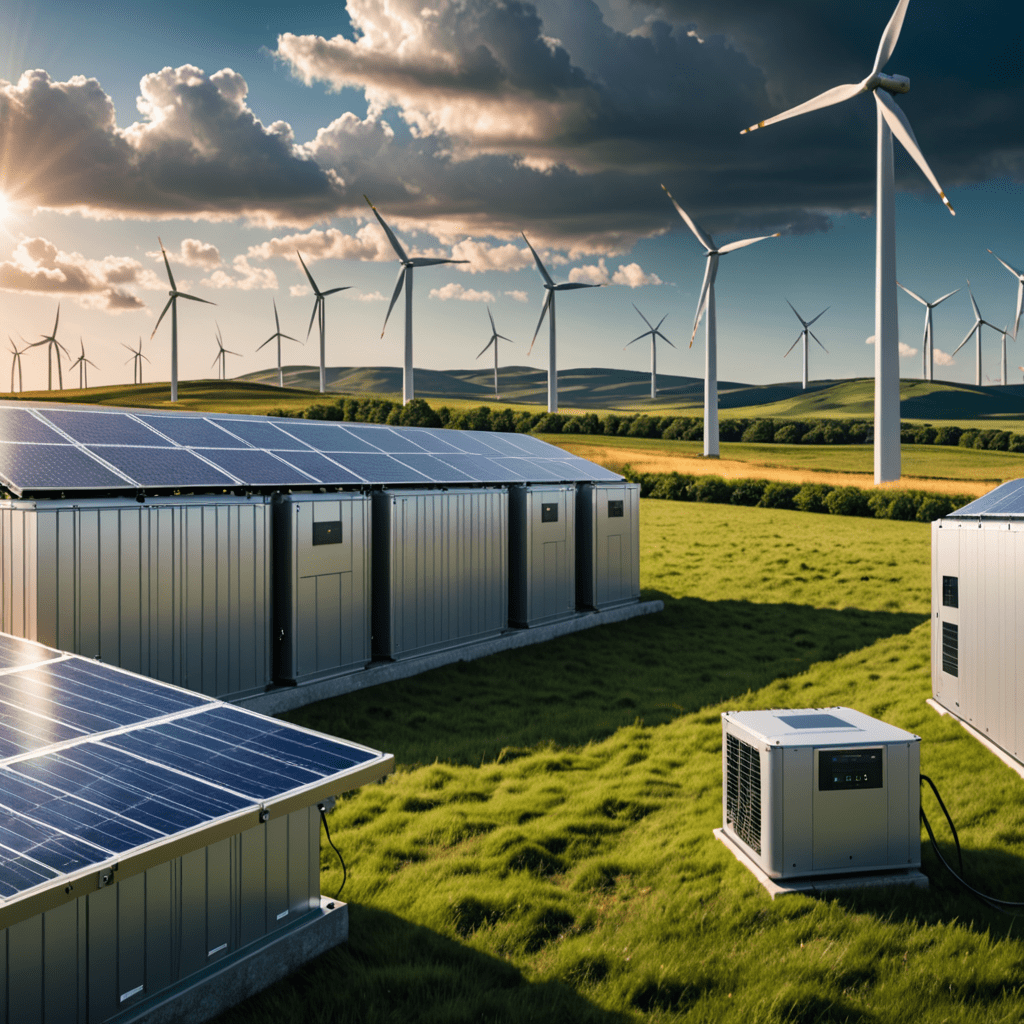
The Technological Advancements in Biomass Energy Generation
Biomass energy generation, a renewable energy source derived from organic materials like wood, crops, and organic waste, has seen significant technological advancements in recent years. These developments have paved the way for more efficient and sustainable methods of harnessing energy from biomass. Let’s delve into some of the key advancements in biomass energy generation:
1. Advanced Conversion Technologies
New technologies such as gasification and pyrolysis have revolutionized biomass energy generation. Gasification converts biomass into a gas mixture called syngas, which can be used to generate electricity or produce biofuels. Pyrolysis involves heating biomass in the absence of oxygen to produce bio-oil, biochar, and syngas.
2. Integrated Biorefineries
Integrated biorefineries have emerged as a sustainable approach to biomass energy production. These facilities utilize various biomass feedstocks to produce a range of bio-based products, including biofuels, biochemicals, and bioplastics. By integrating multiple processes, biorefineries maximize the value extracted from biomass resources.
3. Biomass Co-firing
Biomass co-firing involves combusting biomass alongside coal in existing power plants. This practice reduces greenhouse gas emissions and increases the overall efficiency of conventional power generation. Advanced technologies enable seamless integration of biomass into coal-fired power plants, promoting cleaner energy production.
4. Bioenergy Storage Solutions
Technological innovations in bioenergy storage have addressed the intermittent nature of biomass energy sources. Advanced storage solutions, such as biogas upgrading and thermal energy storage, enable better integration of biomass energy into the grid. This ensures a reliable and consistent energy supply from renewable biomass sources.
5. Precision Agriculture Techniques
Precision agriculture technologies play a vital role in optimizing biomass production for energy generation. Techniques like satellite imaging, drones, and IoT sensors enhance crop monitoring and management, leading to higher yields and improved efficiency in biomass feedstock cultivation. By maximizing biomass output, these technologies support sustainable energy generation.
6. Waste-to-Energy Innovations
Recent innovations in waste-to-energy processes have expanded the scope of biomass energy generation. Technologies that convert organic waste materials, such as agricultural residues and food waste, into energy products like biogas and biofuels are gaining prominence. These advancements not only reduce waste disposal issues but also contribute to renewable energy production.
7. Grid Integration and Smart Grid Technologies
Integrating biomass energy into the electrical grid efficiently requires smart grid technologies. Smart grid systems enable real-time monitoring, control, and optimization of biomass energy generation and distribution. By enhancing grid stability and flexibility, these technologies facilitate the seamless integration of biomass energy into the existing energy infrastructure.
Overall, the continuous evolution of technological innovations in biomass energy generation holds great promise for a cleaner, more sustainable energy future. By harnessing the power of biomass through advanced technologies, we can reduce reliance on fossil fuels and mitigate environmental impact, paving the way for a greener world.
FAQ about Technological Advancements in Biomass Energy Generation
What is Biomass Energy Generation?
Biomass energy generation involves using organic materials, such as wood, agricultural residues, or waste, to produce heat, electricity, or biofuels. This renewable energy source helps reduce greenhouse gas emissions.
How have Technologies Advanced in Biomass Energy Generation?
Technological advancements in biomass energy generation have led to the development of more efficient and sustainable processes. Innovations like gasification, pyrolysis, and integrated biorefineries have enhanced the conversion of biomass into energy products. Biomass boilers and turbines have also become more sophisticated, increasing energy output.
What are the Benefits of these Technological Advances?
The advancements in biomass energy generation offer several benefits, such as reducing reliance on fossil fuels, decreasing carbon emissions, and promoting rural development through biomass supply chains. These technologies contribute to a more sustainable and environmentally friendly energy sector.

